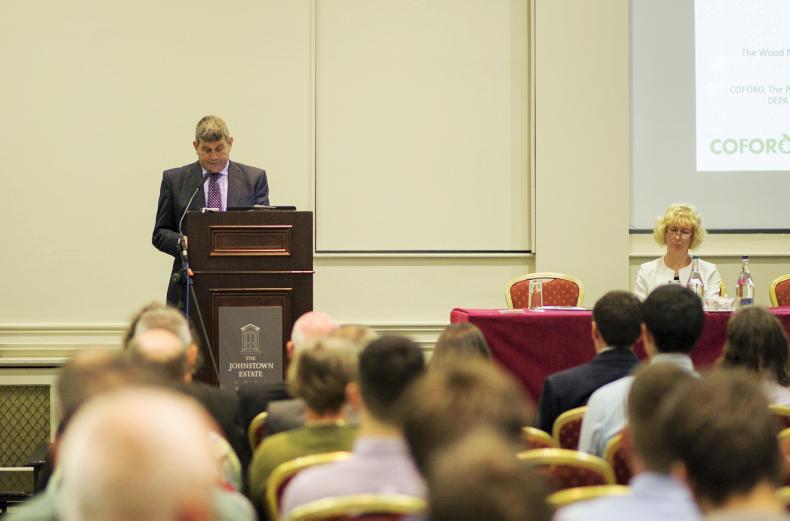The capital expenditure was invested in forestry development and forestry support schemes.
In 2016, €98m of capital expenditure was invested in forestry development, 96% of which went towards afforestation grants and premiums.
An additional €4.2m was spent on other forestry support schemes for forestry and woodland reconstitution, and development projects.
Total expenditure was highest in 2012, with €108.2m spent on forestry. In 2016, €102.2m was spent in the area.

Trade
In terms of trade, Council for Forest Research and Development (COFORD) data concluded that exports of forest products were €355m in 2015, a 4% decline on 2014.
In 2015, 54% of the Irish market for sawn softwood timber was supplied by domestic production, with the balance being imported. However, over the same period, only 3% of the Irish market for sawn hardwood was supplied domestically.
In 2015, forest products to the value of €612m were imported.
This trade is dominated by the importation of pulp, paper and paper-board products. In 2015, these imports represented 67% of forest product imports into Ireland.
Environment
The report also outlined Ireland’s intention to meet its EU emission target, placing the emphasis on forestry in recent years.
During 2016, considerable work was undertaken to continue the transition of the agriculture and forest sector to a safe and sustainable low-carbon future; as part of Ireland’s implementation of policy arising from formed directives, international commitments and national environmental legislation.
In recent weeks it was confirmed that plantation of forestry had reduced by 14% in 2017, compared with the same time last year.
Read More
Forestry planting sees a 14% reduction in 2017
National climate plan sees agriculture contribution without cutting food output
The capital expenditure was invested in forestry development and forestry support schemes.
In 2016, €98m of capital expenditure was invested in forestry development, 96% of which went towards afforestation grants and premiums.
An additional €4.2m was spent on other forestry support schemes for forestry and woodland reconstitution, and development projects.
Total expenditure was highest in 2012, with €108.2m spent on forestry. In 2016, €102.2m was spent in the area.

Trade
In terms of trade, Council for Forest Research and Development (COFORD) data concluded that exports of forest products were €355m in 2015, a 4% decline on 2014.
In 2015, 54% of the Irish market for sawn softwood timber was supplied by domestic production, with the balance being imported. However, over the same period, only 3% of the Irish market for sawn hardwood was supplied domestically.
In 2015, forest products to the value of €612m were imported.
This trade is dominated by the importation of pulp, paper and paper-board products. In 2015, these imports represented 67% of forest product imports into Ireland.
Environment
The report also outlined Ireland’s intention to meet its EU emission target, placing the emphasis on forestry in recent years.
During 2016, considerable work was undertaken to continue the transition of the agriculture and forest sector to a safe and sustainable low-carbon future; as part of Ireland’s implementation of policy arising from formed directives, international commitments and national environmental legislation.
In recent weeks it was confirmed that plantation of forestry had reduced by 14% in 2017, compared with the same time last year.
Read More
Forestry planting sees a 14% reduction in 2017
National climate plan sees agriculture contribution without cutting food output







 This is a subscriber-only article
This is a subscriber-only article










SHARING OPTIONS: